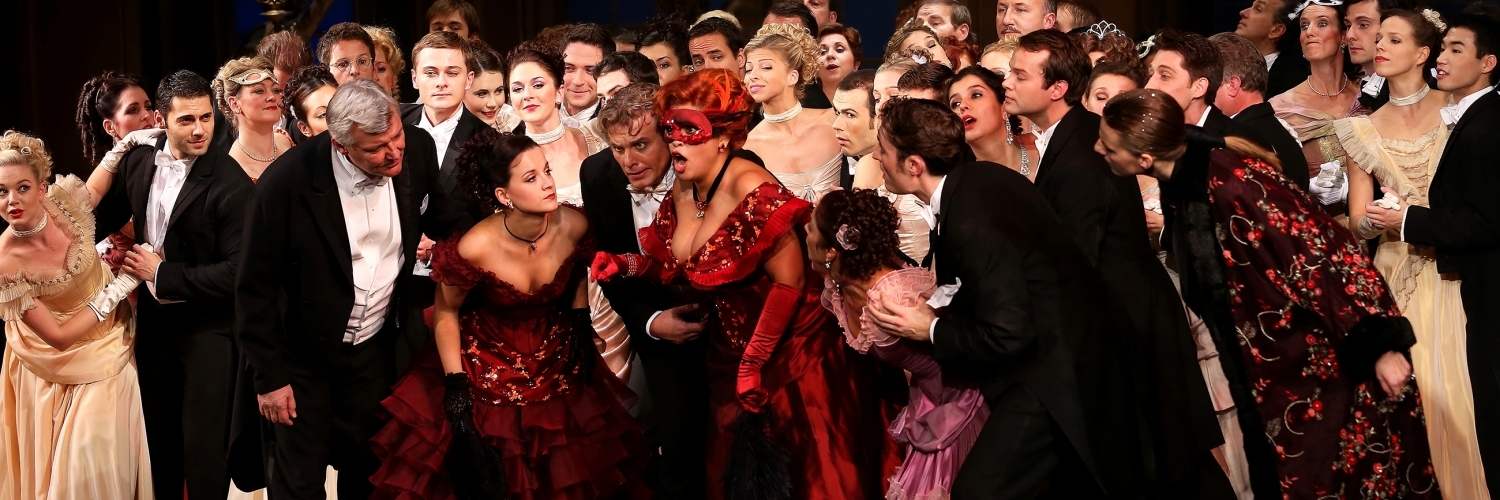Nabucco - Schedule, Program & Tickets
Nabucco
Chorus of the State Opera
Orchestra of the State Opera
National Theater Opera Ballet
The opera Nabucco, which depicts the dramatic story of the subjugation of the Israelites by the King of Babylon, is one of Guiseppe Verdi's most famous works. Phenomenal choral scenes, extremely passionate virtuoso arias and ever-current themes such as expansive war, lust for power, betrayal, life and death are the reasons why it has always been an integral part of the opera houses' repertoire.
The title character is based on the historical figure King Nebuchadnezzar II. The opera begins with a true event, the destruction of Solomon's Temple in 587 BC. But the subsequent conversion of Nabucco (Nebuchadnezzar) to Judaism and the liberation of the Hebrews from Babylonian captivity are fictional creations of the librettist, as are the complicated relationships within the royal family and the dispute between Nabucco's two stepdaughters over the love of the same man want to fight and conquer the throne. The libretto, which loosely mixed true historical facts, a biblical legend and fantasy, allowed Verdi to fully display his immense musical virtues for the first time. The colossal triumph of Nabucco, his third opera, at its world premiere at La Scala in Milan in 1842 paved the way to stardom for the 28-year-old composer. The opera's most famous number, the chorus "Va, pensiero, sull'ali dorate" ("Fly, thought, on golden wings"), expresses the Hebrew exiles' hope for freedom.
In Verdi's time, however, it became a symbol of the Italian patriots' resistance to Austrian domination, an unofficial anthem of the pursuit of a united Italy without foreign rule, and the choir has retained its political significance to this day. Just as Verdi's librettist was inspired by the Bible, especially Psalm 137, biblical symbolism is also at the forefront of director Tomáš Ondřej Pilař's conception of the new state opera production of Nabucco.
A co-production with the Slovak National Theater
Subject to change.
Orchestra of the State Opera
National Theater Opera Ballet
The opera Nabucco, which depicts the dramatic story of the subjugation of the Israelites by the King of Babylon, is one of Guiseppe Verdi's most famous works. Phenomenal choral scenes, extremely passionate virtuoso arias and ever-current themes such as expansive war, lust for power, betrayal, life and death are the reasons why it has always been an integral part of the opera houses' repertoire.
The title character is based on the historical figure King Nebuchadnezzar II. The opera begins with a true event, the destruction of Solomon's Temple in 587 BC. But the subsequent conversion of Nabucco (Nebuchadnezzar) to Judaism and the liberation of the Hebrews from Babylonian captivity are fictional creations of the librettist, as are the complicated relationships within the royal family and the dispute between Nabucco's two stepdaughters over the love of the same man want to fight and conquer the throne. The libretto, which loosely mixed true historical facts, a biblical legend and fantasy, allowed Verdi to fully display his immense musical virtues for the first time. The colossal triumph of Nabucco, his third opera, at its world premiere at La Scala in Milan in 1842 paved the way to stardom for the 28-year-old composer. The opera's most famous number, the chorus "Va, pensiero, sull'ali dorate" ("Fly, thought, on golden wings"), expresses the Hebrew exiles' hope for freedom.
In Verdi's time, however, it became a symbol of the Italian patriots' resistance to Austrian domination, an unofficial anthem of the pursuit of a united Italy without foreign rule, and the choir has retained its political significance to this day. Just as Verdi's librettist was inspired by the Bible, especially Psalm 137, biblical symbolism is also at the forefront of director Tomáš Ondřej Pilař's conception of the new state opera production of Nabucco.
A co-production with the Slovak National Theater
Subject to change.
There are no products matching the selection.





